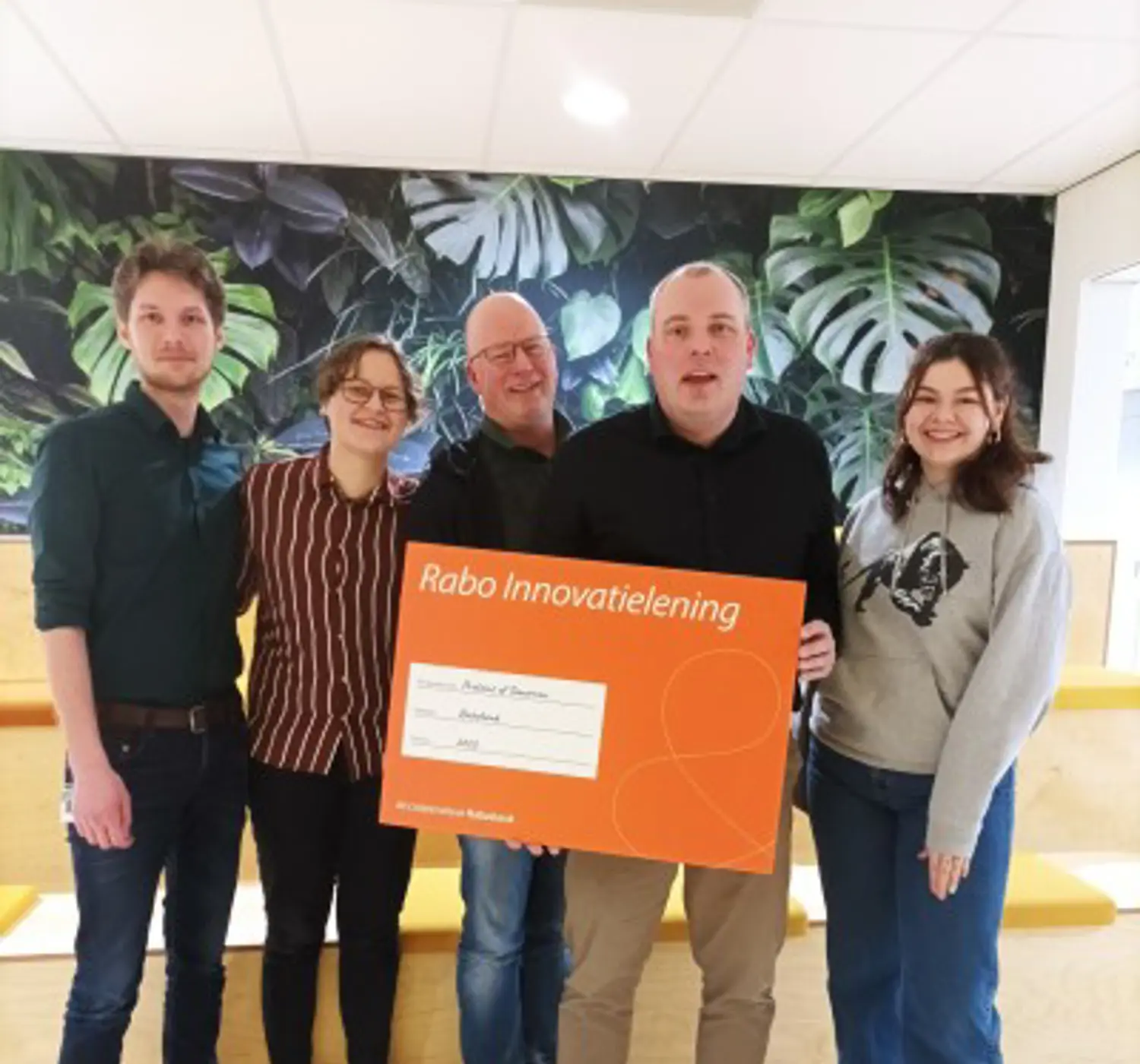14-02-2023
Proteins of Tomorrow creates high-quality plant proteins quickly and sustainably

In 2050, twice as much protein (food protein) is needed to feed all people and livestock on earth. If we continue to produce proteins in the current way, i.e. mainly focused on meat and dairy, there will be insufficient space for this and the climate will become overburdened. The Delft start-up Proteins of Tomorrow developed a way to produce high-quality vegetable proteins quickly, efficiently, environmentally friendly and affordably. To further develop their invention, the young company applied for and received a Rabo Innovation Loan of EUR 150,000.
To make the plant proteins, Proteins of Tomorrow uses the fungal threads of mushrooms, also known as mycelium, and a protein-rich by-product from a food production process. For example, malt left over after brewing beer. 'We put these ingredients together and, in a natural, patented process, grow them into a texture rich in protein,' says Paul den Dulk, one of the founders of Proteins of Tomorrow. 'That texture can take many forms, from fillets to cubes. Food companies can use this as an ingredient in their finished products. Think of meat substitutes, plant-based cheese or plant-based milk or cottage cheese, but also products that partly contain meat. Meatballs or croquettes, for example.'
Fast, efficient and energy-efficient
How exactly the process works, Den Dulk cannot elaborate too much on that. 'What I can tell you is that we do not use a bioreactor like other manufacturers that make vegetable proteins with mycelium. That means our process is much faster, more efficient and more energy-efficient. In addition, we do not use any water during the process and hardly have any waste, because almost all raw materials end up in our final product. Another advantage: our product can very easily be made locally; there is no need to drag it from one side of the world to the other. In this way, we create an environmentally friendly, affordable product.'
Customer panels and pilot plant
Proteins of Tomorrow will spend the 150,000 euros from the Rabo Innovation Loan on several things. Den Dulk: 'Our product was conceived in a lab. Now we are going to introduce customer panels to investigate which applications are attractive to consumers and which are not. We are also going to build a pilot plant. Right now, we are at a production rate of 75 kilos per day. In six months' time, we want to produce 1,000 kilos a day. Finally, we want to use the money to attract talent.'
About the Rabo Innovation Loan
The Rabo Innovation Loan is specifically for entrepreneurs with innovative ideas that contribute to digitalisation, sustainability or vitality. Gerben Dijksterhuis of the Rabobank Start-up & Scale-up Team was involved in assessing Proteins of Tomorrow's loan application. 'What we like about this start-up is that they make plant-based proteins with a promising new technology. Several companies are working on this - also on a large scale - but with large, energy-guzzling bioreactors. Proteins of Tomorrow produces relatively quick, easy and energy-efficient.'
Innovative boosters
Rabobank believes it is important to support these kinds of innovations, says Dijksterhuis. 'These kinds of start-ups do not qualify for regular financing, because the innovation is not yet proven and there is a risk that the loan cannot be repaid. But at the same time, we as a bank see that innovative start-ups and scale-ups have a big role to play in driving the transitions we consider important, such as the food- and energy transition. We believe we should also get behind them and help those companies.'
More information about the Rabo Innovation Loan or want to apply? Visit https://www.rabobank.nl/bedrijven/zakelijk-financieren/financieringen/rabo-innovatielening
